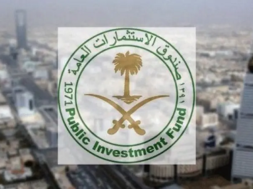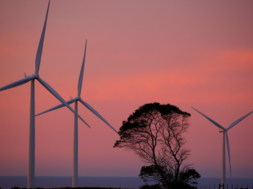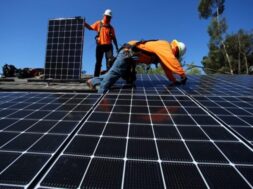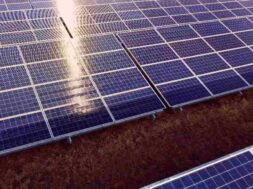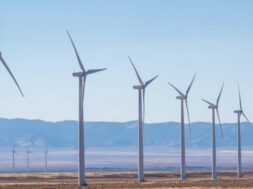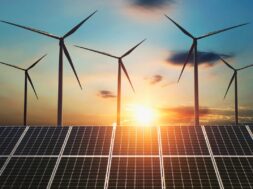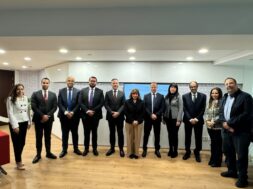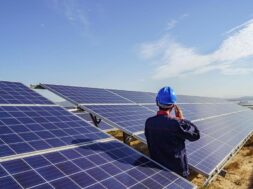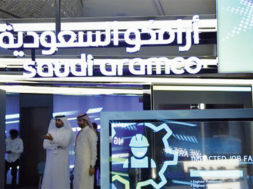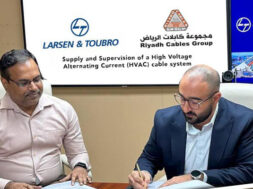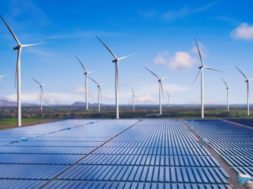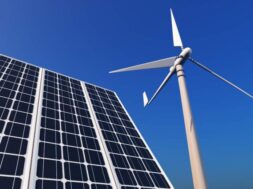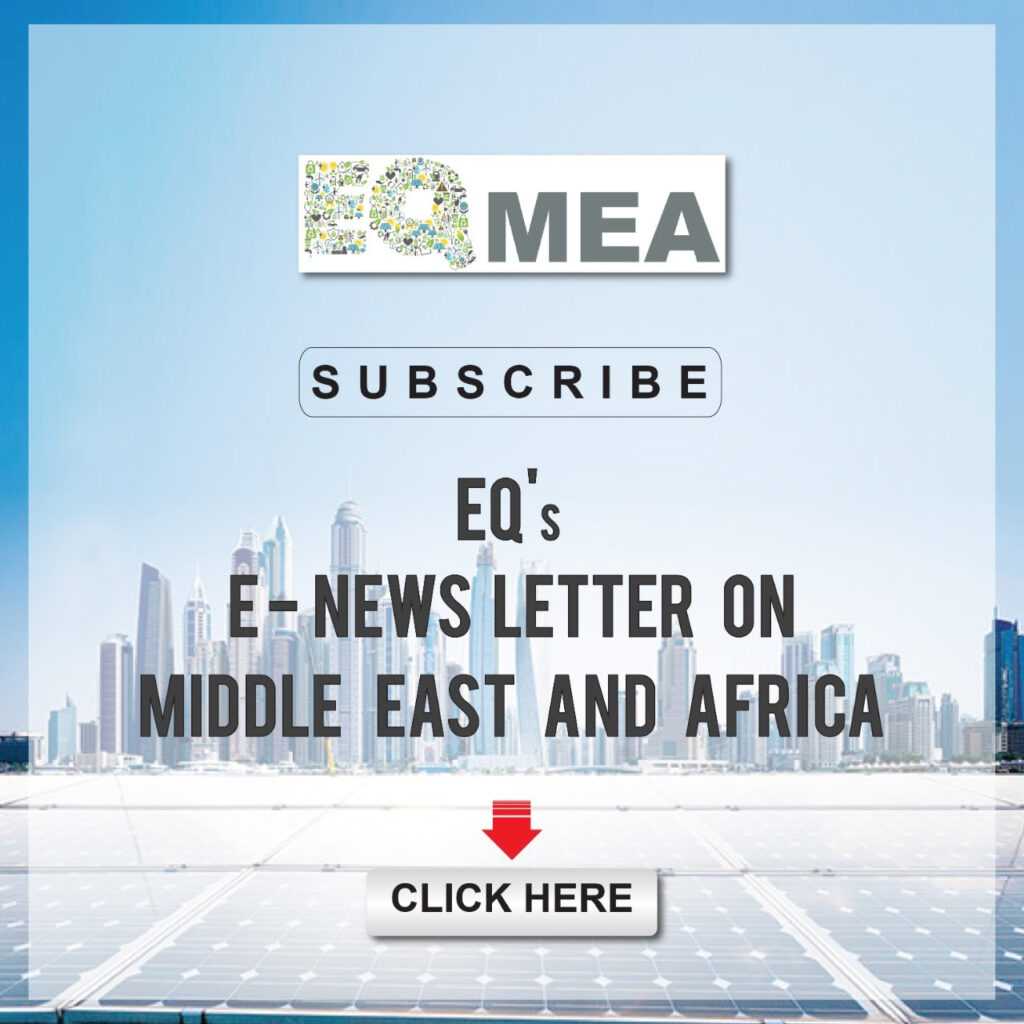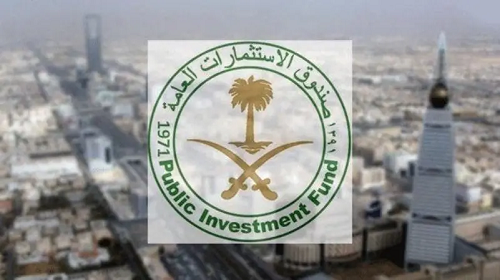
Sustainability in focus: Saudi wealth fund PIF’s path to net zero emissions – EQ Mag Pro
Saudi Arabia’s wealth fund, PIF, has set ambitious goals for the sustainable growth of the utilities and renewables sector, in line with the Kingdom’s Vision 2030 goals.
These follow the United Nations’ Sustainable Development Goals, while contributing to the wealth fund’s path to localization in technologies and knowledge.
Solar power
The Sudair Solar Voltaic power plant is on path to becoming one of the largest solar power plants globally, and the biggest of its kind in Saudi Arabia.
It is being developed in line with Saudi Arabia’s National Renewable Energy Program (NREP) that aims to achieve 58.7GW of renewable energy capacity by 2030.
Built by PIF-backed ACWA Power, it is being developed on a 30-square-kilometer site southeast of al-Majmahh in Riyadh Province at a cost of $904 million (SAR 3.4 billion).
The energy produced by the plant is expected to power at least 185,000 houses, while reducing carbon emissions by 2.9 million metric tons annually.
Alternative energy
Mega-project NEOM has partnered with PIF-backed ACWA Power to invest in the world’s largest green hydrogen plant.
Situated in NEOM, the new ammonia production facility is expected to be powered by renewable energy and help transition a fossil fuel-dependent world into more sustainable alternatives.
Saudi Arabia seeks to become the world’s biggest exporter of hydrogen.
The fuel only emits water vapor when burned, making it less polluting than oil, natural gas and coal. The technology for producing it on a mass-scale is still unproven, but the market could be worth $700 billion annually by 2050 if manufacturers can bring down costs, according to BloombergNEF.
Riyadh believes demand for oil will remain high for decades and is spending billions of dollars to increase its crude-production capacity. Yet Crown Prince Mohammed bin Salman aims to diversify the economy, and hydrogen is an important part of his strategy.
Electric vehicles
PIF has made a significant investment in electric vehicle manufacturer Lucid Motors. The Saudi wealth fund owns as much as 60 percent of the EV company.
In August, Faisal Sultan, managing director of global operations at Lucid said in an interview with Bloomberg that Saudi Arabia has been supportive of the company during a supply crunch that forced two production target cuts this year.
Lucid, which already has a deal to sell as many as 100,000 electric vehicles to Saudi Arabia over the next decade, continues to see a big opportunity in the region, Sultan told Bloomberg.
“The government is very serious and they’ve been working very hard with us to make sure the environment is ready,” he was quoted as saying.
Additionally, the wealth fund also partnered with Lucid to train 34 Saudi engineering students and to give them an opportunity to contribute to the growing EV ecosystem in the Kingdom.
Infrastructure development
NEOM also announced several mega projects, like The Line, a linear mega city within the mega-development announced by Saudi Arabia’s Crown Prince in July.
It will rely fully on renewable energy and will supposedly preserve 95 percent of nature in the area around the project.
The towering city is also slated to not have cars, streets, or carbon emissions, but instead use a “high-speed mobility solution,” according to a press release shared at the time.
The Red Sea Project, a part of companies in PIF’s portfolio, is on a mission to set a new global standard in sustainability.
The 28,000 square kilometer project is expected to develop less than one percent of the total area and rely purely on renewable energy for power generation, water production, wastewater treatment, and district cooling.
Waste and energy consumption
Aligned with the Saudi Green Initiative, the establishment of the Saudi Investment Recycling Company (SIRC), is expected to achieve the Kingdom’s goals by removing approximately 94 percent of municipal solid waste from landfills by 2035.
SIRC, a fully owned subsidiary of the PIF, acquired the Global Environmental Management Services company in 2019, to grow in the field of hazardous and industrial waste management, in addition to establishing several construction and demolition waste recycling plants in Riyadh.
The National Energy Services Company, Tarshid, is responsible for replacing over 2.7 million higher-energy sodium vapor light bulbs that illuminate the Kingdom’s roads with modern, more efficient LED units, that comply with energy efficiency standards.
It also rewired 8,000 government buildings and structures for more better efficiency and reduced expenditure, reportedly saving 4.154 terawatt hours a year – supposedly comparable to saving 6.6 million barrels of oil.
The PIF-established company initiatives also resulted in reducing carbon emissions down to 2.4 million metric tons a year, according to a statement shared with the press, equivalent to the environmental impact of planting 39.3 million seedlings annually.
Market and future economy
The PIF announced in March that five leading Saudi businesses signed MoUs to become its first potential partners of the Middle East and North Africa regional Voluntary Carbon Market (VCM).
The VCM aims to connect the supply of carbon credits with demand from investors and institutions wanting to reduce their carbon footprint by offsetting the emissions they generate.
Carbon credits are a mechanism used to reduce greenhouse gas or carbon emissions. They act as a permit to enable the owner of the credit to emit a certain amount of emissions.
“PIF and its subsidiaries are committed to strengthening the non-oil economy of the Kingdom, with a projected aggregate target of $319 billion (SAR1. 2 trillion) of the GDP by 2025,” the Saudi wealth fund said a in a press release.
“The Kingdom’s long-term roadmap’s influence has helped transform PIF into an incubator and enabler that played a primary role in the creation of new, promising sectors and opportunities that are instrumental in shaping the future of the global economy,” it added.
Earlier this year, during the Saudi Green Initiative Forum, Saudi Arabia’s Crown Prince announced the country’s aim to achieve net-zero emission by 2060 through the Carbon Circular Economy approach.
Also, in line with Vision 2030, such initiatives contribute to the development of the Kingdom’s green economy, create more jobs and open up new avenues for investments in the private sector.
